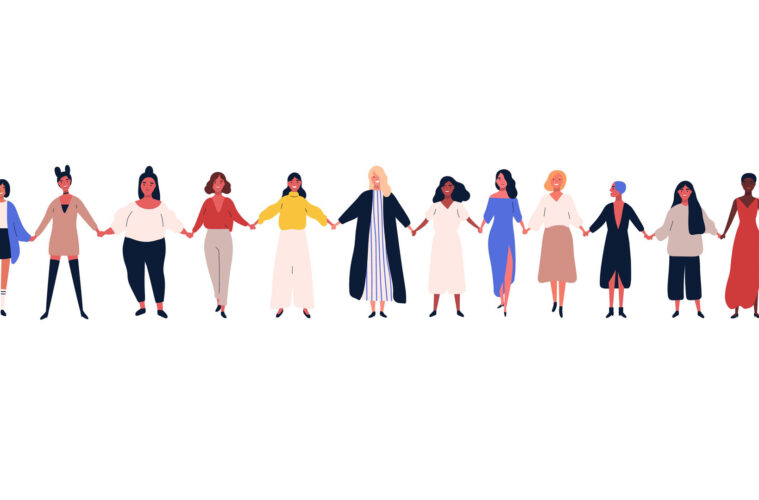Female-led apex courts are driving transformative reforms across Africa, a shift analysts say could enhance governance ratings and attract foreign investment.
In 2004, Rwanda’s Aloysie Cyanzayire broke barriers by becoming Africa’s first female Chief Justice, leading judicial reforms in a nation recovering from genocide.
Her leadership not only reconstructed Rwanda’s judiciary but also set a precedent for women assuming top judicial roles in Kenya, Sudan, and beyond. Cyanzayire was instrumental in strengthening judicial independence, introducing oversight mechanisms, and playing a key role in the Gacaca courts—a community-based justice system that processed hundreds of thousands of genocide-related cases.
Three years later, Georgina Theodora Wood made history as Ghana’s first female Chief Justice, becoming only the second woman in Africa to lead a national apex court.
Her tenure was marked by anti-corruption efforts and the introduction of mobile courts to serve rural populations. Over a decade, she transformed a sluggish legal system into a regional benchmark, tackling high-profile corruption cases—even those reaching the presidency—and reducing case backlogs by 40%.
In 2015, Justice Wood dismissed 20 judges and magistrates in Ghana after they were found guilty of bribery.
Nearly two decades later, the impact of female-led courts continues to be felt across the continent, with more women rising to lead supreme courts and reshaping historically male-dominated legal systems.
South Africa’s appointment of Mandisa Maya as Chief Justice in June 2024 marked another milestone in Africa’s evolving judicial landscape.
Today, at least eight nations—including Kenya and Sierra Leone—have women heading their highest courts, a stark contrast to 2004, when Cyanzayire stood alone.

Among these trailblazers is Kenya’s Martha Koome, who has led the country’s judiciary since 2021. She joins Nemat Abdullah Khair, who took charge of Sudan’s judiciary in 2019, and Mabel Agyemang, who was appointed Chief Justice of Turks and Caicos in 2020.
Lúcia da Luz Ribeiro has led Mozambique’s Constitutional Court since 2019, working alongside Meaza Ashenafi in Ethiopia’s Federal Supreme Court since 2018 and Hildah Chibomba in Zambia’s Constitutional Court since 2016.
Maria de Fátima Coronel has overseen Cape Verde’s Supreme Court of Justice since 2015, while Kadidiatou Abdoulaye Ly Diori has led Niger’s Constitutional Court since 2013.
From Kenya to Ethiopia, South Africa to Sierra Leone, women-led courts are driving impactful reforms—accelerating case resolutions, expanding economic opportunities, and strengthening public trust in the judiciary.
However, legal analyst and advocate Mary Claudio cautions that judicial appointments remain highly political, even as female leadership enhances trust.
“In Kenya for instance, the Chief Justice and other judges are presidential appointees after a competitive selection process and nomination by the Judicial Service Commission,” she explained.
“Still, women’s leadership in justice is viewed as fostering integrity and public confidence, but anyone can be corrupted.”
A 2023 UN report supports the notion that women justices positively influence a country’s rule of law.
“Women are often considered to have more integrity and are difficult to corrupt,” stated judge Mujinga Bimansha Marie Josée in the report.
Kenya’s Koome has emerged as a leading figure in judicial reform. Under her leadership, digitised court filings and virtual hearings have cut average case resolution times from seven years to three, unlocking millions of dollars in stalled capital for businesses in 2023 alone.
She has also championed trauma-informed procedures for sexual violence cases, reducing delays for survivors, while mobile courts in pastoralist regions have helped resolve land disputes for thousands of smallholder farmers.
Further, UN studies indicate that courts led by women resolve gender-based violence cases 20% faster on average—a factor linked to workforce productivity gains, according to the International Association of Women Judges.
“Women’s representation in the judiciary is key to ensuring that courts represent their citizens, address their concerns and hand down sound judgments,” the report stated.
“By their presence, women judges enhance the legitimacy of courts, signalling that they are open and accessible to those who seek recourse to justice.”
The impact of judicial reforms extends beyond gender equity.
A 2021 study by the United Nations Economic Commission for Africa (UNECA) titled Advancing Gender-Equitable Outcomes in African Continental Free Trade Area (AfCFTA) Implementation emphasises the need for gender mainstreaming in economic policies.
It states, “Women across the continent are disproportionately affected by deeply rooted gender inequalities and a number of structural barriers to economic empowerment. At the same time, women are transformative agents of economic and social change in African economies.”
For tech firms like Flutterwave, which previously faced drawn-out payment disputes in Kenya, judicial reforms under Koome have expedited case resolutions—proving that efficient courts are critical for business survival.
Meanwhile, institutional frameworks supporting gender parity in Africa’s judiciary are taking shape. The African Union’s Agenda 2063 ties judicial funding to gender equality targets.
Yet, despite the rise of female Chief Justices, the gender gap within Africa’s judiciary remains stark.
A 2023 UN report surveying 10 countries found that women accounted for just 40% of judges and magistrates. The judiciary had 4,619 women compared to 6,988 men.
However, representation varies widely. Countries like Algeria, Kenya, Lesotho, and Zimbabwe have women making up over 50% of their judiciaries, whereas Burkina Faso, Morocco, Nigeria, and Sierra Leone report female representation below 30%.
This imbalance presents a paradox: while women increasingly lead apex courts, lower judicial ranks remain male-dominated.
Analysts warn that without systemic reforms in judicial appointments and career progression, gender parity in Africa’s judiciary will remain inconsistent and fragile.
Seth Onyango, bird story agency


